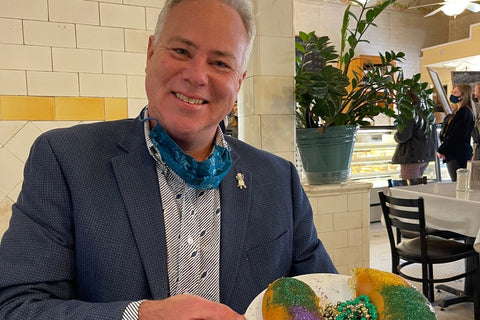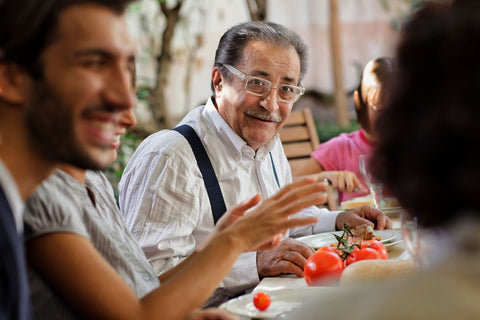Our person of the month is McNulty. He is a well-known food writer and covers food culture and dining in New Orleans. Mr. McNulty is a staff writer for the New Orleans Advocate and covers the trends behind the city's famous dining scene. He is the author of "Louisiana Rambles: Exploring America's Cajun and Creole Heartland" (a travel book about south Louisiana) and "A Season of Night: New Orleans Life After Katrina." In the charming French Quarter in New Orleans, we met Mr. McNulty and asked him to tell us how Italian cuisine has influenced Creole cuisine.
Italians have a rich history in New Orleans. What has been the Italian cultural contribution to the city?
The way the Italian story played out in New Orleans started out here, in the French Quarter. This was the "Italian ghetto." The French Quarter was not very glamorous back then. It was worker housing, like little Italy in New York. When the Italian families became more successful, the second generation moved to different neighborhoods, with bigger houses and yards. In the 1940s and 1950s, these families were having restaurants, so that's why there's so many Italian restaurants in New Orleans. In my neighborhood, Mid-City, you can see the Italian influences through the restaurants and the food. Italian cuisine has been a major influence in New Orleans. For example, there are multiple restaurants selling gumbo and red gravy (red sauce) on the same menu!
What do you like most about Italian food in New Orleans?
Italian food is comfort food. It is the food of home and family. Even though I didn't grow up in an Italian family (I grew up in an Irish family), we ate far more Italian food at home than Irish food. Italian food was economical for a family trying to pay the bills; there was always red sauce and chicken Parmigiana in the freezer. In New Orleans, what I love about it, is the strong connection to family through food. When people serve it, it's not just something that's flavorful and interesting or fits their diet. There's a lot of passion in it. Italian food just puts it right under your nose. It's so accessible, so heartfelt: making the sauce, making the right gravy is a passion for the people who do it well. It's just such an easy thing to share by sitting down to a meal, getting the invitation over to somebody's house. These are dishes that have a heritage to them. They speak about families. They speak about their journeys.
Have you ever had a chance to share this "journey"?
Of course! When I first moved here, I didn't know anybody. I was working at a newsroom with these other journalists and I was sitting next to a colleague from a Sicilian family. His grandmother was born in Sicily and she lived right down the street from the office. He would sometimes go over to her house for lunch. One time he brought me along. It was a Monday. The grandmother generously brought out every dish that she had cooked for Sunday supper the day before. And it just kept coming: pasta, breaded meat, soup, vegetables. I think this is wonderful! She was so impressed by the way that I ate all, that she gave me a new nickname, "Mangione," (someone who eats a lot) which I had never heard before.
Do you have a favorite Italian dish?
It is a personal one for me, maybe a guilty pleasure. It is not very sophisticated, but I love chicken Parmigiana, the way my mom cooked it. I can still taste it. She would cook the chicken; it would sit there on some newspaper for the oil to drain. And I always try to steal a little crispy piece in the corner. That's just comfort to me. These days, I'd say if I'm going into an Italian restaurant, I want to try the meatballs first. I want to see how they do their meatballs because that can be a tell. If you're going into a New Orleans restaurant, you try the gumbo. You can tell a lot about a restaurant by how their gumbo is. When I go to an Italian restaurant, I want to see how they do their meatballs.
Have you ever been to Italy?
I've only been in Trieste. I was really impressed. I loved how easy elegance was, how generous it was. We walk into a bar and order a drink, and they would put a plate of food in front of us. I can get a dinner out of this! I just thought that was such a natural extension of hospitality.



